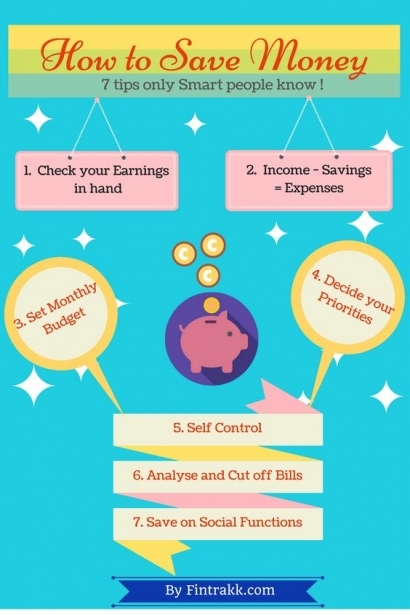How Will Saving Money Benefit you
- Font size: Larger Smaller
- Hits: 11597
- 0 Comments
- Subscribe
Too many people do not put away enough money for their retirement or unexpected expenditures. Planning will give you peace of mind and ultimately lead to a better quality of life.
There are two common traps people fall into when it comes to saving and investing. The first is that we say we can't afford to save money - "I hardly get by on what I earn". The second is that people think there's always plenty of time before they need to start planning their financial future.
The truth is that if you're earning an income, you can afford to put some away and the longer you postpone investing for your future - the more you'll have to put away every month to reach your goals.
All it takes is a little planning and self-discipline. This article will help you formulate a budget and start an investment plan.
Monthly Budget
The first step is to draw up a monthly budget. Be realistic and use your head - don't let your spending be guided by your emotions. Most of us waste money through impulse spending.
This means we often spend money on things we don't need, just to make ourselves feel better when we're feeling down. This does nothing except make our lives more difficult in the long term.
Take a few days to draw up a monthly budget. Review it a few times; shifting a few dollars here and there can make a big difference in the end. Being realistic means that you have to consider all expenses.
You are going to want to go out sometimes or buy clothes and occasionally spoil yourself with luxury items. It does not matter how much you earn, you need to adjust your budget so that you're able to put away at least 10% of your monthly income into a savings account.
Start Saving Money
If you do not have a savings account, open one. Look for the best interest you can, while having reasonable access to your money - you may need it in an emergency.
It is usually better to have an account that doesn't allow you instant access to your money, consider a 24-hour notice account - this will help prevent impulse spending. Stick to your budget.
There isn't much point putting all your spare income away if you have high-interest debt. Mortgage rates are usually fairly low, but if you can afford to - pay a little extra every month this will make a big difference in the amount of interest you pay over time.
Take a serious look at high-interest debt like credit cards, store accounts, and motor finance. You will always be paying more interest on these, compared to what you're earning from a regular savings account.

If you have accounts that are charging a lot of interest, pay them off as soon as possible. When you start saving perhaps put only 5% of your income into a savings account so that you can start building up a security nest egg. Use the remaining 5% to start paying off accounts and credit card debt.
Having credit cards can be a good thing. It improves your credit rating and gives you access to extra money if you really need it. However, credit cards must be used responsibly. Pay all outstanding credit balances on these cards and start paying the full amount outstanding every month. Interest on credit card debt will eat away at your ability to save.
Longer Term investing
When you start saving money, you'll be putting a little away every month, this means you'll only be able to put money into a conventional savings account. The interest on these accounts aren't too high, but at least your money is starting to grow. To get better returns on your money, you need to have a relatively large sum to work with.
If you've been putting away 10% of your income for a year, you'll probably be able to start looking at longer term investments that will enable your savings to show better growth. Initially, you may want to put your money into a fixed deposit account.
These accounts range from 3 months to a few years and will earn better interest than a savings account. Remember that you won't be able to access that money for the duration of the deposit period, so keep some money back in case of emergency.
Over time you will want to consider better investment opportunities. This could take the form of stocks, bonds, real estate and p2p lending or even currency or bitcoin trading. The important thing here is keeping a balanced portfolio and a broker can advise you on how to do this.
You don't want to invest all money in similar markets. This means to invest some in retail stocks, some in industrial stocks, bonds, gold or real estate - to name a few options. The more you diversify, the safer your money will be - when one market falls another will rise, offsetting the losses.
Following these few easy tips will change your life forever. It may take a little time to adjust to living off less money every month - but the rewards are well worth it.